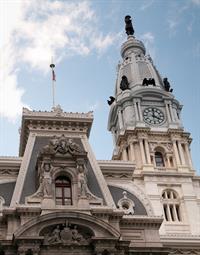Subscribe for Weekly Updates

Philadelphia Taxation of COVID-19 Grants for Small Businesses
 By Jonathan Liss
By Jonathan Liss
Numerous federal, state, and local relief programs have been enacted to help the economy recover from the impact of the COVID-19 pandemic. Among these have been grants to struggling small businesses. Generally, COVID-19-related government grants to businesses are taxable income for federal tax purposes unless Congress acts to exempt them from tax.
The 2020 CARES Act included the Coronavirus Relief Fund, which gave $150 billion in direct federal assistance to state and local governments to cover expenditures incurred due to the pandemic and to establish grant programs to help businesses cope with the impact of the pandemic. The Consolidated Appropriations Act (CAA), signed into law on Dec. 27, 2020, made funds available for additional small business relief. The IRS has indicated that these state and local grants to businesses are taxable income. In addition, state and local grants to businesses that are funded outside the CARES Act and CAA are also taxable to businesses.
There are, however, certain types of COVID-19-related government grants that Congress excluded from taxable income. These include emergency grants under the Economic Injury Disaster Loan (EIDL) program; Targeted EIDL Advances under the Economic Aid to Hard-Hit Small Businesses, Nonprofits, and Venues Act; Small Business Administration (SBA) loan subsidy payments, and Shuttered Venue Operator Grants.
Philadelphia Tax Treatment of Grants
 If a grant is included in federal taxable income, it will also be included in Philadelphia taxable income,1 absent a specific exclusion.
If a grant is included in federal taxable income, it will also be included in Philadelphia taxable income,1 absent a specific exclusion.
The CAA provides, in part, that certain EIDL grants under CARES Act Section 1110(e) and Targeted EIDL Advances under the Economic Aid to Hard-Hit Small Businesses, Nonprofits, and Venues Act shall not be included in the recipient’s gross income (including those funds already received) and no deduction shall be denied by reason of that income exclusion. The CAA provides similar federal tax treatment for SBA loan subsidy payments authorized by Section 1112(c) of the CARES Act and for Shuttered Venue Operator Grants.
Philadelphia will conform to the federal tax treatment of these specific COVID-19-related grants and advances for the purpose of the net income portion of the Business Income and Receipts Tax (BIRT) and will allow businesses to exclude them from taxable income (both Method I and Method II filers). To be consistent for purposes of reporting taxable income, such grants and advances will not be subject to the net profits tax, and expenses paid from these funds can be deducted.
Regarding the gross receipts portion of the BIRT, grants to businesses are generally considered to be Receipts2 if the recipient is expected to provide services in return for the payment. There is no service component associated with COVID-19-related grants and advances, therefore, they will be excluded from a taxpayer’s receipts.
Grants to assist businesses that are not from the EIDL program – including direct payments from state and local governments – are generally taxable under federal law. If a grant is included in federal taxable income, it will also be included in Philadelphia taxable income, absent a specific exclusion. Philadelphia will conform to the federal tax treatment of grants from state and local governments. Such payments are taxable income for BIRT (both Method I and II filers) and net profits tax purposes.
The pandemic has created a plethora of federal, state, and local tax issues. Given the complexity of these issues and a lack of uniformity among state and local taxing jurisdictions, it is imperative to consult with a tax adviser.
Please refer to the Philadelphia Department of Revenue’s published guidance on Philadelphia’s treatment of COVID-19-related grants.
1 Philadelphia Code Section 19-2601, Definitions, Net Income (a)(.2)
2 Philadelphia Code Section 19-2601, Definitions
Jonathan Liss is senior revenue policy analyst for the City of Philadelphia. He can be reached at jonathan.liss@phila.gov.
You can learn more from the Philadelphia Department of Revenue at PICPA's Tax Con on Nov. 17-18.
Sign up for weekly professional and technical updates from PICPA's blogs, podcasts, and discussion board topics by completing this form.







Leave a commentOrder by
Newest on top Oldest on top